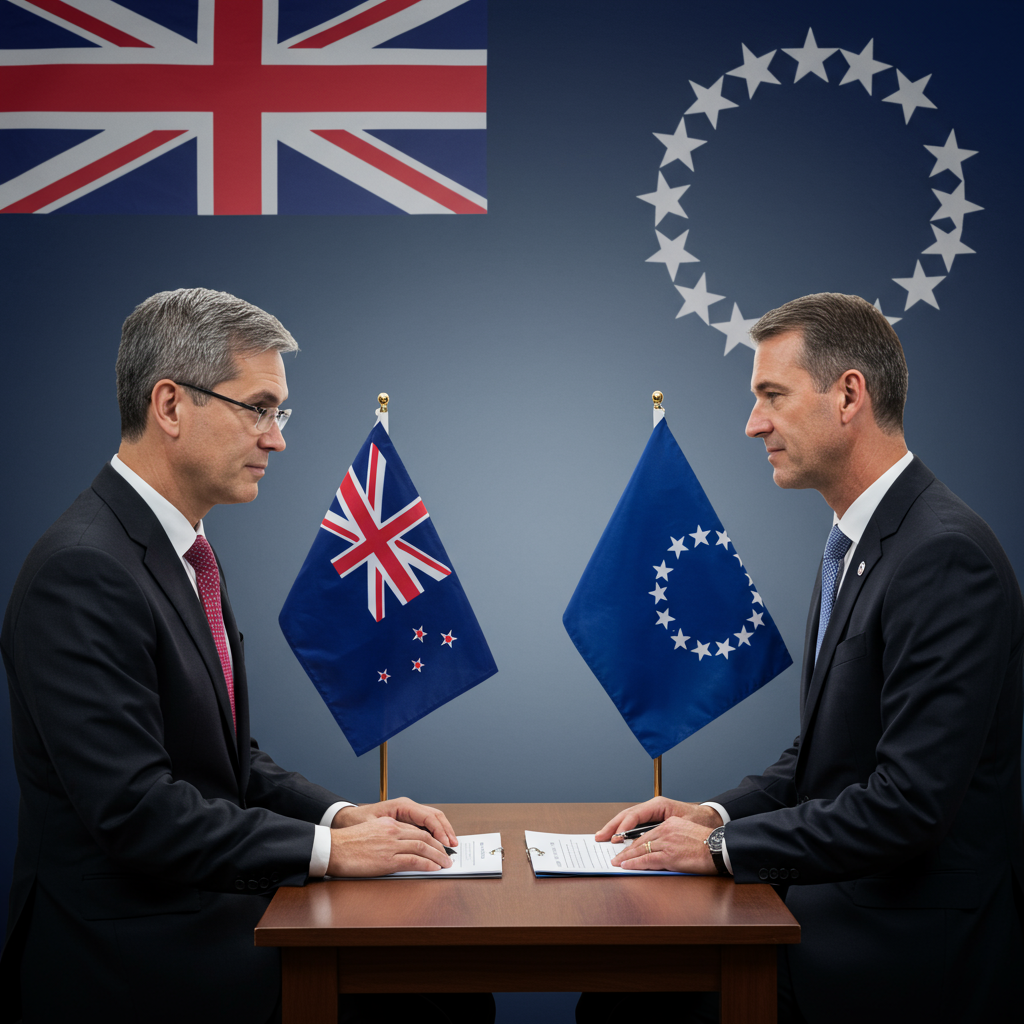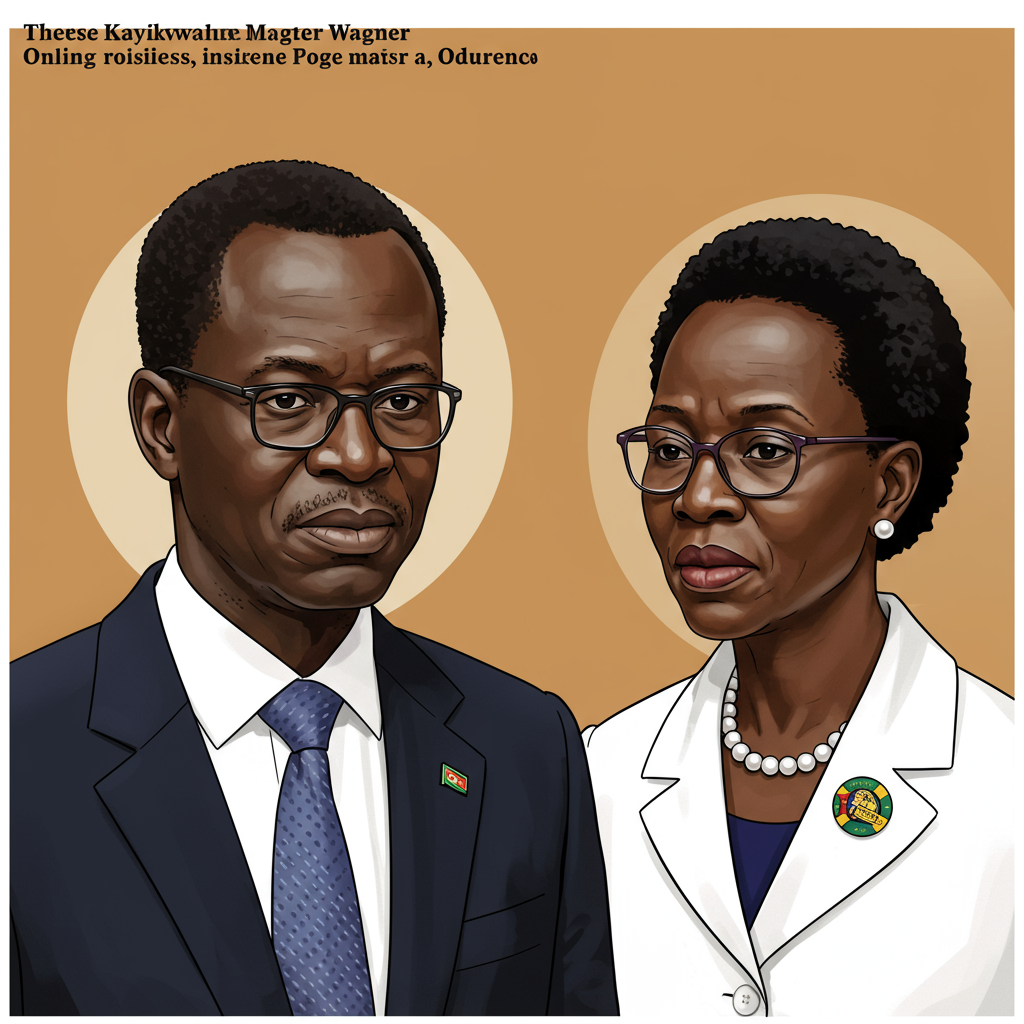New Zealand has significantly paused millions of dollars in crucial development funding for the Cook Islands. The decision follows a series of wide-ranging agreements the smaller Pacific island nation recently signed with China, a move that has sparked concerns in Wellington regarding trust, consultation, and China’s deepening influence in a strategically vital region.
Wellington, historically the Cook Islands’ largest source of financial aid, expressed being caught off guard by the deals struck in February. These agreements cover diverse sectors including infrastructure, tourism, and technology, but perhaps most notably, deep-sea mineral exploration – a sector of increasing global interest in the Pacific.
Why New Zealand Hit Pause
The funding halt specifically targets NZ$18.2 million (approximately US$11 million), which was designated as “core sector support” for vital areas like health, education, and tourism. Officials from New Zealand’s Foreign Minister Winston Peters’ office stated that no new funding will be considered until the Cook Islands takes “concrete steps to repair the relationship and restore trust.”
New Zealand views funding as relying on a “high-trust bilateral relationship.” The lack of prior consultation by the Cook Islands government regarding the “breadth and content” of the China pacts is seen as a direct challenge to the nearly 60-year-old “free association” compact between the two nations. This unique relationship mandates consultation on agreements with other countries that could impact New Zealand. Wellington insists it was not shown the China agreements despite repeated requests before they were signed, viewing this as the first serious test of these consultative requirements and illustrating a “gap in understanding.”
The decision to pause funding was made in early June, reportedly coming to light publicly when mentioned in a Cook Islands government budget document.
Cook Islands Responds Amidst Tension
The Cook Islands government acknowledged the issue, stating it was “determined to address [it] as a matter of urgency” and emphasizing its high value for New Zealand’s long-standing development assistance. Its foreign ministry confirmed that “constructive dialogue is ongoing” and reiterated commitment to engaging closely with New Zealand to understand and address concerns.
Cook Islands Prime Minister Mark Brown defended the deals with China, stating they were based on his country’s “long-term interests.” He sought to reassure neighbours like Australia and New Zealand that these new agreements are “complementary” and do not “replace our longstanding relationships.” Prime Minister Brown downplayed the significance of the frozen amount, describing the funding as “paused,” not halted. He also disputed the necessity of consulting New Zealand on the specifics, insisting the deal concerned neither security nor defence issues, suggesting New Zealand’s response was about “control” rather than consultation and blaming misinformation from New Zealand for instability.
However, the news of the agreements sparked protests in the capital, Avarua, and led to a vote of no confidence against Prime Minister Brown in parliament, which he ultimately survived. The Cook Islands Opposition Leader, Tina Browne, expressed disappointment over the perceived lack of transparency but reluctantly understood New Zealand’s position, noting they “can’t keep feeding us and then we’re running away and straying.”
China’s Foreign Ministry spokesperson described China and the Cook Islands as “comprehensive strategic partners,” asserting their cooperation “targets no third party, nor should it be interfered with or constrained by any third party.”
Delving into the China Deals
The Comprehensive Strategic Partnership signed with China is a five-year deal that included a one-off grant of $4 million. While the Cook Islands government stated the agreement focuses on climate and economic resilience, sustainable development, and marine science, it also outlines cooperation in trade, investment, and significantly, the “seabed minerals sector.” Crucially, not all details of the signed documents were publicly released, contributing to the opacity that concerned New Zealand.
Context: China’s Expanding Pacific Footprint
This friction occurs within the broader context of China’s accelerating efforts to deepen ties with small but strategically located Pacific Island nations. Beijing’s success in signing a security pact with the Solomon Islands in 2022 previously alarmed Western nations, including Australia and New Zealand. Analysts view New Zealand’s action regarding the Cook Islands as an “entirely avoidable consequence” of the Cook Islands’ “strategic flirtations” with Beijing, arguing it’s difficult to deny a strategic angle given China’s increasing assertiveness in the region. New Zealand has also recently halted development funding to Kiribati, another Pacific nation, indicating a broader posture regarding China’s regional activities which Wellington sees as potentially posing threats to regional security and stability.
A Unique Relationship Under Strain
The relationship between New Zealand and the Cook Islands is unlike any other. It is defined by a pact of “free association,” where the Cook Islands is self-governing, but New Zealand assists with defence and foreign affairs. Cook Islanders also hold New Zealand passports, and while around 15,000 reside in their own nation, approximately 100,000 live in New Zealand and Australia. The demographic and cultural ties are deep; Cook Islands Māori are closely related to New Zealand Māori. Over the past three years alone, Wellington has provided substantial funding, totalling around NZ$194 million to NZ$200 million.
These deep, historical, constitutional, and cultural links explain the strong reaction from New Zealand to the Cook Islands pursuing significant new ties without sufficient consultation. It tests the fundamental requirements of their unique partnership. The Cook Islands had shown previous signs of seeking greater autonomy, such as abandoning a proposal to introduce its own passport in 2024.
Awkward Timing and Geopolitics
The announcement of New Zealand’s funding pause coincided with New Zealand Prime Minister Christopher Luxon’s first official visit to China, where he was scheduled to meet President Xi Jinping. Despite the potentially awkward timing, Foreign Minister Peters’ spokesman indicated they were not concerned about Beijing’s potential reaction, citing Wellington’s “special relationship” with the Cook Islands. However, Cook Islands Prime Minister Brown made a pointed reference to Luxon’s trip in parliament, stating he trusted that any agreements Luxon made in Beijing would “pose no security threat to the people of the Cook Islands,” highlighting a reciprocal lack of transparency and underlying tensions.
The situation underscores the complex geopolitical dynamics at play in the Pacific, where traditional partnerships are being tested by China’s growing presence and influence. New Zealand hopes the Cook Islands will swiftly address its concerns so financial support can resume as soon as possible, but the path to restoring trust appears to require significant dialogue and concrete action.



